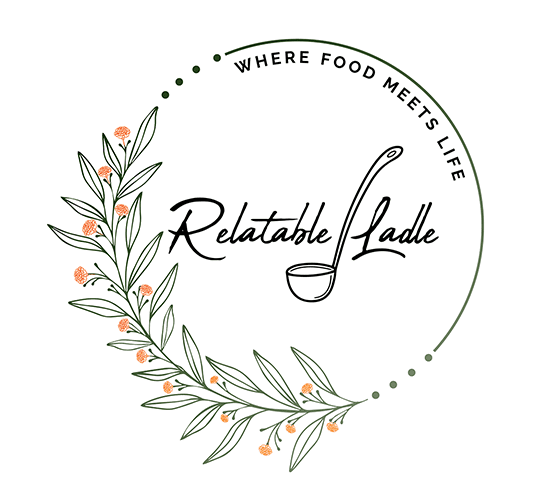Societal expectations significantly influence our feelings and how we express them in various scenarios in overt and subtle ways.
Reflecting on my own life, I remember the time I shared with my friends about my decision to go no contact with my family. Initially, many of them questioned my choice, and I couldn’t blame them.
How often do we hear the following?
“You must always be loyal to blood.”
“Never turn your back on family!”
“Family comes first.”
“That’s just what happens with family.”
When we shared the abuse we endured, people felt we should automatically hate our family for the terrible things they’ve done. But sometimes life isn’t always so black and white, and emotions are complicated.
As the stories came out in more detail, our friends did understand why we moved forward with our decision and supported us in ways I will always be grateful for.
Understanding societal expectations and the complexities of emotions is critical for mental wellness, clarity, and relationships.
How Society Impacts Our Emotions
Have you ever wondered why we are expected to react the way we do in specific scenarios? For example, we often feel joy at a wedding, grief at a funeral, pride at an academic achievement, and shame in response to failure.
These expectations, deeply ingrained in us and influenced by cultural narratives, media portrayals, and social interactions, often create a profound struggle. This struggle is between what we genuinely feel and what we believe we should feel, as dictated by societal norms. It’s a battle that can be hard to navigate, and it’s one that many of us face daily.

The Pressure to Conform
The pressure to conform to societal expectations can lead to emotional dissonance (Denver Metro Counseling) or internal conflict when our genuine emotions do not align with what we express publicly. Dissonance can cause anxiety, depression, and a diminished sense of self-worth. For example, if someone does not feel sad at a funeral, they might think there’s something wrong with them, which intensifies feelings of isolation or self-judgment.
Emotions Are Not One-Size-Fits-All
Human emotions are not always predictable. Emotional responses can vary widely based on individual differences, past experiences, and current circumstances. Expecting everyone to react similarly to life events can invalidate personal experiences.
The complexity of emotions is notable in responses to positive events. Societal norms may expect happiness during milestones like graduations or promotions, but the reality is often more nuanced. One might feel anxiety about the future, sadness about closing a life chapter, or overwhelmed. These are all common and legitimate emotions that might accompany these events.
The Impact on Mental Health
The dissonance between expected and actual emotions can have profound effects on mental health. Masking one’s true feelings can result in chronic stress and emotional exhaustion. If people believe they must always appear happy or content, they may hesitate to seek help or support when needed, further exacerbating feelings of depression and anxiety.
Cultural Variations in Emotional Expression
Different cultures have different rules regarding emotional expression. What could be an appropriate display of emotion in one culture may be discouraged in another. For example, in many Western cultures, expressing anger or frustration is often seen as necessary and healthy, whereas in many Asian cultures, harmony and avoiding confrontation are prioritized.
With increasingly globalized communities, recognizing and respecting these differences is critical for effective communication, building relationships, and avoiding misunderstandings and conflicts.
The Role of Social Media
It’s important to acknowledge the role of social media in shaping societal expectations. These platforms often encourage us to curate the best moments and the most picturesque aspects of our lives, which can lead to increased feelings of inadequacy and isolation. This ‘highlight reel’ also intensifies the pressure to conform to an idealized emotional state, often far from reality.
Moving Forward: Authenticity and Emotional Literacy
Addressing these societal norms begins with promoting emotional literacy, which is the understanding and management of our emotions. This, in turn, fosters emotional intelligence. By integrating emotional education into our systems, such as in schools and workplaces, we can create environments where diverse emotional responses are not only accepted but also valued.
Open discussions about emotions and making space for vulnerability can also help break down the barriers created by societal expectations. Let’s cultivate a society that values authenticity over conformity by acknowledging that experiencing a wide range of emotions in any situation is normal.
Conclusion
Our emotions and societal expectations are intertwined in ways that can significantly impact our well-being and social dynamics. We can better support one another by recognizing these complexities and working towards a more inclusive understanding of emotional expression. This acceptance not only enriches personal lives but also strengthens the fabric of society itself.
What do you think of societal expectations?
Please drop us a comment below. You might be interested in our article on being “too much” or why people are mean to nice people, or being a people pleaser.
Disclaimer: All content and information on this website including our recipes and blog articles is for informational and educational purposes only and does not constitute medical, psychological, or health advice (for that please always seek the help of a professional in these areas). We do not warrant that the information presented herein is free of any errors or omissions although we do our best to provide information backed by research.

